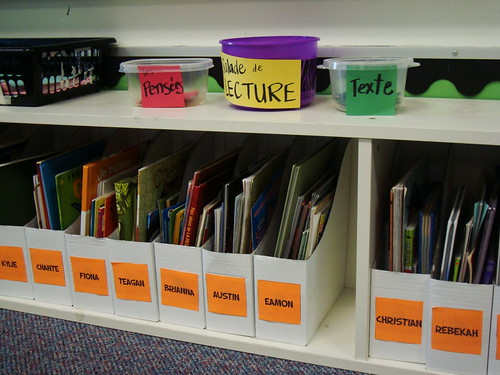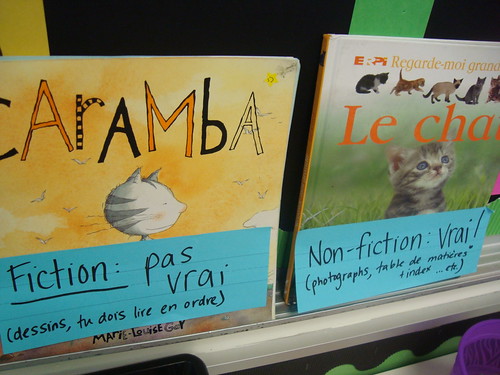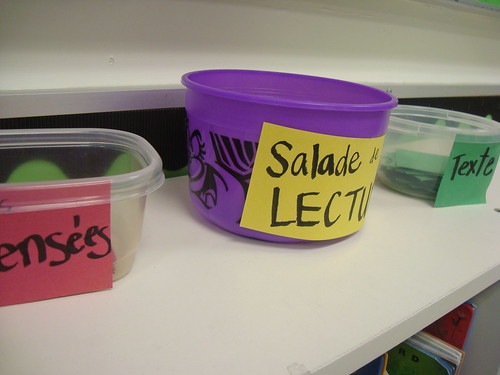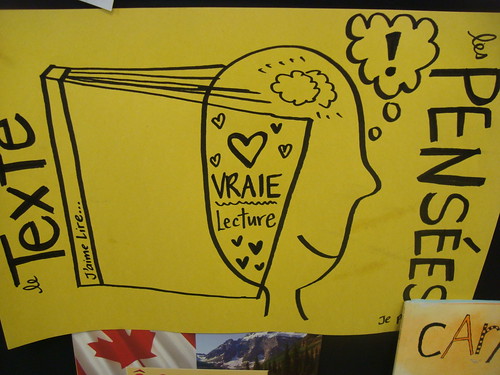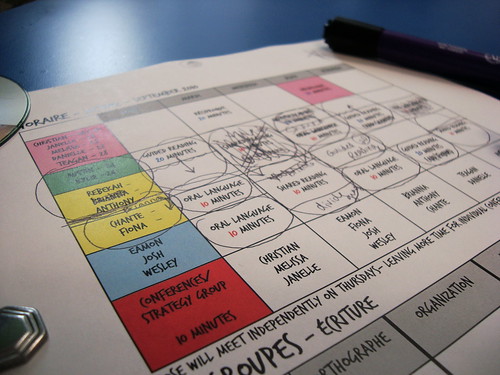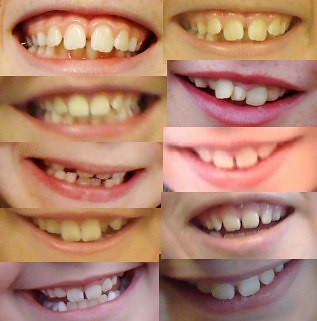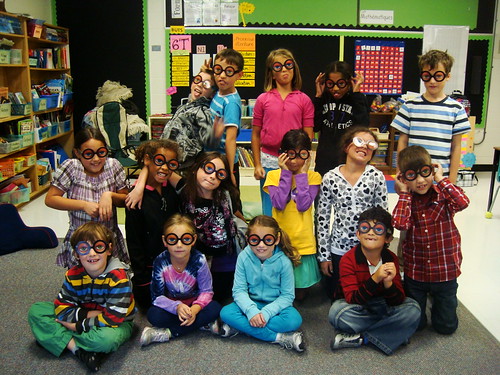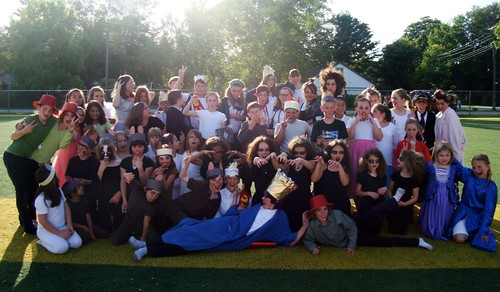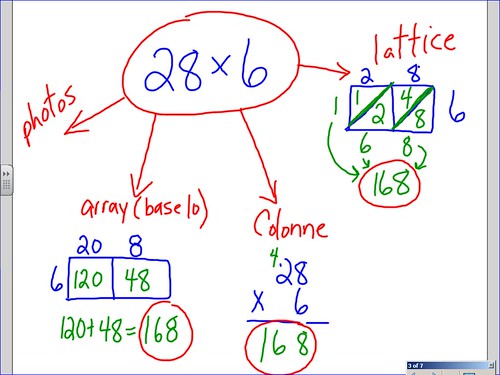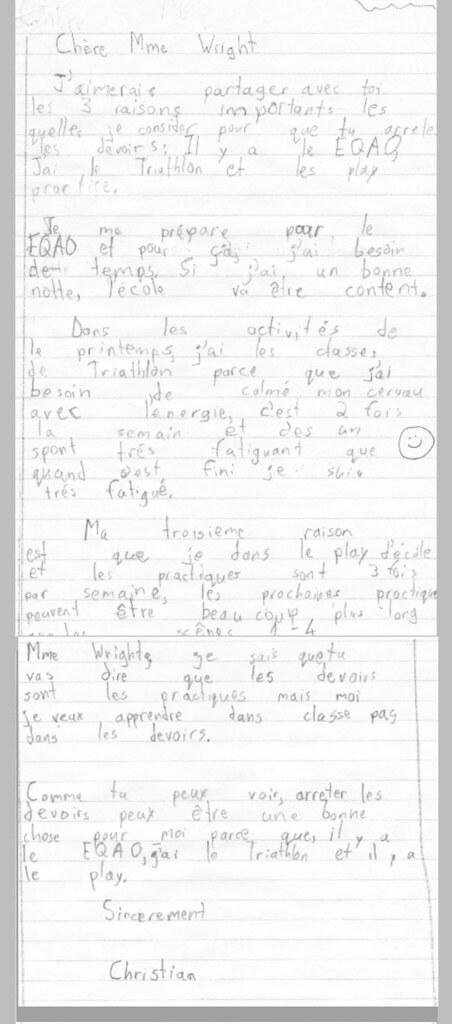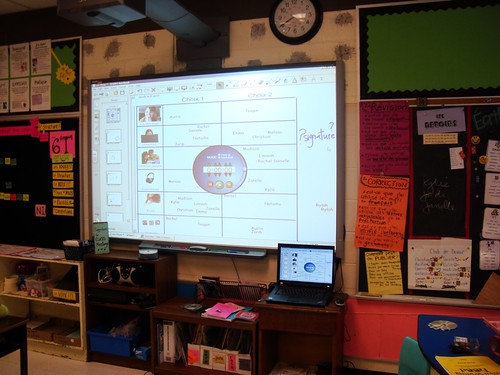Solve problems requiring the greatest or least number of two-dimensional shapes (e.g., pattern blocks) needed to compose a larger shape in a variety of ways.
Here is a sample week in the life of my math classroom. (It is always changing. My weekly plan this week was quite different than a month ago and might be quite different a month from now.) – see my Math Planning Sheet – based on Mandy Gregory’s. If you’d like to see my (french!) SMARTboard minilessons for the week, please let me know (I can’t seem to upload them here…)
Mondays: Open-Ended Problem based on expectation of the week. This week I translated one of Marian Small‘s problems – Choose any pattern block. Use 20 of the same pattern block to create any shape. Now, choose a different pattern block. How many of this type of block do you need to cover the shape you created?As you can see, this question is extremely open so that all students can have an entry point.
We did an introduction to the manipulatives and reviewed the names of the shapes. Students then split off into teacher-selected partners* to respond to the question on chart paper with markers. After 25 minutes, we gathered together to share our learning. (Based on what I saw, I was able to form my groups for the week). *I choose partners for this activity to so that one person doesn’t do all of the work. I try to match them up with an “equal” partner the best I can.
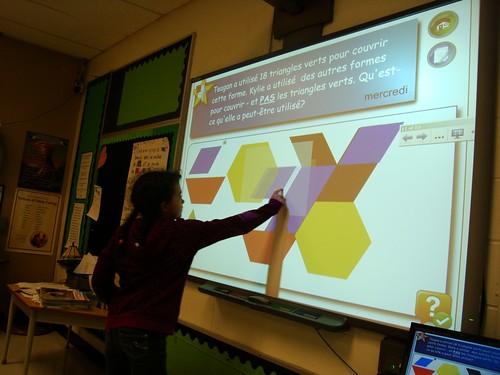
Tuesdays/Wednesdays/Thursdays: We started with a SMARTboard minilesson to reinforce the curriculum expectation. After 5-7 minutes, we moved into our Guided Math groups. The expectation that I am working on will determine the centre activities the kids do. This week, one centre was working on the NLVM (virtual manipulatives) website creating different 2D shapes with pattern blocks (they have it in French – yahoo!), one was doing paper and pencil practice at their desks (I usually make up my own sheets as the math textbook is a bit too wordy/irrelevent – but sometimes the text) and the other was a tangram challenge with “real” manipulatives. Eventually I would like them to be able to choose which centre they would like to work on, but for now they are on a rotation. The kids do two activities during this block (20 minutes each). At the end, they come back as a whole class and different students volunteer to share their math thinking of the day.
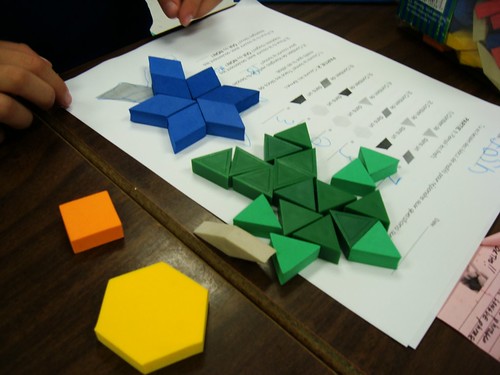
One of the rotations is working with me on the carpet in a small group. For Guided math groups – just like in reading – I make sure I see my lowest group daily (this is usually based on what i see on Monday) – and then plug the rest of the groups in. When working with me, we either work together to build on the skill/concept of the week – this is done with a mini problem, question, activity – usually done orally with a small whiteboard and manipulatives.
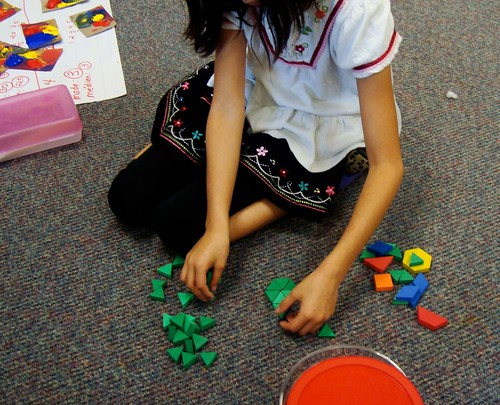
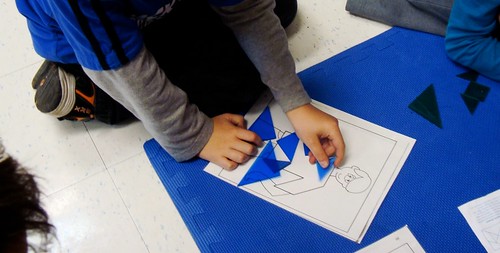
Fridays: Independent assessment (taken from EQAO or a parrallel task or a quiz/test) – summative of the expectation of the week to see if they “got it”. This is done completely independently. This week I chose an old EQAO question for them to tackle. – Many of them did well! Yahoo!
The end.
(feel free to give me feedback – or ways to improve!!!)

